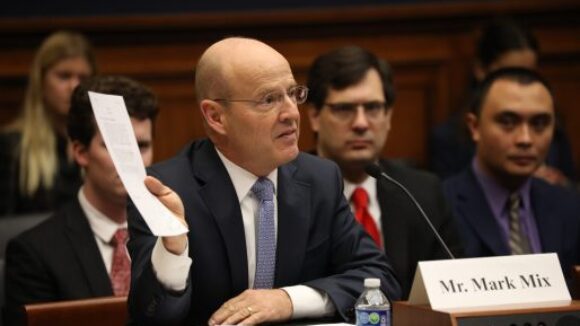It’s been 90 days since lawmakers in Lansing approved legislation to make Michigan America’s 24th Right to Work state, but the statute prohibiting forced union dues and fees has yet to take effect. This is common practice. In the Wolverine State, unless a law passes with the backing of at least two-thirds of legislators, it normally doesn’t go into effect for
3-4 months.
The time lag from the December 11, 2012 enactment of the Michigan Right to Work law to its implementation on March 28, 2013 isn’t extraordinary, but the widespread scheming by Big Labor and its collaborators to take advantage of the time lag to circumvent the law is. Forced-union-dues provisions included in any union contracts negotiated and signed before March 28 will remain legal for the life of the contract.
Many union bosses are cynically rushing to negotiate contracts that stretch out years longer than is normal in order to keep their forced-dues privileges locked in for another five, six, seven, eight or even more years. And all too many public employers are submissively going along.
In a recent editorial (linked below), the Detroit News charges that the last-minute rush to adopt forced-unionism contracts “isn’t fair to educators who would like to opt out of their union — or to the taxpayers who fund their salaries”:
The University of Michigan has reached an agreement on a five-year contract with its 1,500 member lecturers’ union, and Wayne State University officials have agreed to an eight-year contract.
Last month, the Taylor School District ratified a four-year contract with the Taylor Federation of Teachers but included a separate 10-year union dues clause that locks teachers into paying up for a decade. . . .
Some Republican lawmakers are irked with this blatant maneuver around the right-to-work law.
State Rep. Tom McMillin, R-Rochester Hills, and chair of the House Oversight Committee would like some answers. He invited Taylor officials to testify before the committee, but they declined. He’s also requested Wayne State administrators testify on March 12, since they will already be in Lansing for a hearing with the House Appropriations Subcommittee on Higher Education.
“In addition to it appearing to be a blatant attempt to sidestep the right-to-work law, agreeing to eight-year contracts means a decision made by school officials would extend beyond their terms of elected office,” McMillin said in a statement.
Union representatives in Detroit, Utica and Dearborn are also trying to secure new collective bargaining agreements before right to work kicks in.
In the rush to preserve their strength, unions — and the education boards that go along with them —are placing their interests far above those of students, parents and taxpayers.
Editorial: Schools wrong in skirting right to work | The Detroit News …


